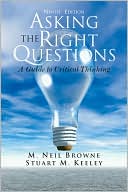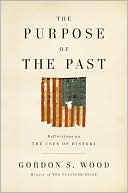Narrative Research in Nursing
Narrative research is an increasingly popular way of carrying out qualitative research by analysing stories or experience. The findings of this type of research can be used to improve nursing education, nursing practice and patient care and to explore the experience of illness and the interaction between professionals. Narrative Research in Nursing provides a comprehensive yet straightforward introduction to narrative research which examines the skills needed to perform narrative interviews,...
Search in google:
Narrative research is an increasingly popular way of carrying out qualitative research by analysing the stories or experience. The findings of this type of qualitative research can be used to improve nursing education, nursing practice and patient care and to explore the experience of illness and the interaction between professionals. Narrative Research in Nursing provides a comprehensive yet straightforward introduction to narrative research which examines the skills needed to perform narrative interviews, analyse data, and publish results and enables nurse researchers to use the method systematically and rigorously.Narrative Research in Nursing examines the nature of narratives and their role in the development of nursing and health care. Strategies and procedures are identified, including the practicalities of sampling, data collection, analysis and presentation of findings. The authors discuss authenticity of evidence and ethical issues while also exploring problems and practicalities inherent in narrative inquiry and its dissemination. Narrative Research in Nursing is a valuable resource for nurses interested in writing and publishing narrative research.
Preface viiAbout the Authors ixPerspectives on Narrative ResearchThe Nature and Features of Narrative Research 3Defining the concept and character of narrative 4Narrative in a historical context 6Telling tales 7The social and cultural context of stories 9Narrative, plot and emplotment 9Illness narratives 13Summary 14Narrative Research: Understanding People's Lives 15Typologies, models and features of narrative 16Social constructionism 20The difference between narrative inquiry and other qualitative approaches 20The functions of narratives 21Summary 22Narrative Research in Nursing 23The rise of narrative research in nursing 24Evidence based practice and clinical relevance 25What is evidence based practice? 27Holistic care versus dehumanised care 29The art of nursing 30Meaningful nursing inquiry 31User involvement and narrative research 32Narratives in nursing research: beyond dualism? 34What can narrative research offer the nursing profession? 34The experience of illness 35Narrative and creativity 36Narrative in nurse education 37Summary 37Narrative and the Construction of Identity 39Selfhood and the search for identity 39The active self: identity in the wider context 42Entering the social world 44Shifting identity: narratives as adjustment or liberation from self 45Power, authority and identity 47Gender, culture and collective identity 47Transformation of self through narrative and emotion 48Summary 49Collecting, Analysing and Presenting DataEthical and Political Implications of Narrative Research 53Ethics, narrative identity and informed consent 55Ethics and narrative analysis 56Confidentiality 56Narrative and the politics of research 57Narrative as constructing ethics 59Summary 60The Proposal for a Narrative Study 61The research question or problem 62The rationale of the project and the initial literature review 64The significance of the proposed research to nursing 65Practical considerations 66Design, procedures and process 66Ethical issues 67Summary 67The Art of Sampling and Collecting Data 69Identifying and selecting potential participants 69Sample size 70Types of sampling 71Access and negotiation 73The relationship between researcher and storytellers 75Collecting data from interviews and other sources 75Summary 78Narrative Analysis and Contextualisation 80Concepts related to narrative analysis 82Approaches to narrative analysis 83Levels of analysis 86Analysis and interpretation 87Reflexivity 87Summary 88Presenting Narrative Research 90Presenting the narrative 91The elements of the report and the process of writing 92The use of quotes and examples 97Contextualisation and 'thick description' 98Performative social science 99Complexity 100Conclusion 101Summary 101Critical IssuesTrustworthiness and Authenticity in Narrative Research 105The participant's story 105The narrative of the researcher 107Subjectivity, objectivity and intersubjectivity 108Narrative as science and art: plausibility and rigour 110Reflexivity and contextuality 110The question of validity 111Reliability and contextualisation 111Transferability or generalisability 113Summary 116Problems and Critical Issues 117The researcher's problems 118Analysis and social structure 120Interpretation and meaning 121The truth of stories 122Stories and memory 123Self-critique and critique by others 123Summary 124Practical ConsiderationsWriting for Publication and Other Ways of Disseminating Narrative Research 127Writing an article for the appropriate journal 129Style of writing 131Peer review of articles 132The technical process of writing and publishing an article 133The problems of publishing narrative research 134Publishing a book 134Ethical issues in dissemination 135Giving oral presentations at conferences or meetings 136Practical issues in presentations 137Presenting in the workplace and to specialist groups 138Summary 138Practical Issues in Narrative Research 139Recording and transcribing narrative data 139The use of quotes and quotations in the final researcher narrative 142Evaluation of narrative research 142Questions for evaluating a narrative study 145The skills of the narrative researcher 147Developing an empathic stance as researcher 148Person centred relationships 148Creating the core conditions 149Reciprocity and dialogue 156Summary 157References 158Index 171
\ From the Publisher"This is an excellent book that offers a clear well-written and accessible guide to relatively new research method for many health professionals." (Practising Midwife, December 2008) \ "This book is very much a 'must have' handbook for those embarking on undertaking narrative research." (Nursing Times, 2 Oct 2007)\ "Any book that promotes qualitative research and links it in with the art of nursing gets my vote... The authors set about the topic with obvious enthusiasm. The short, sharp chapters address all the hot topics of narrative research, including ethical principles and what to do if you feel your subjects are not telling the truth." (Nursing Standard, vol 21, May-June 2007)\ \ \








